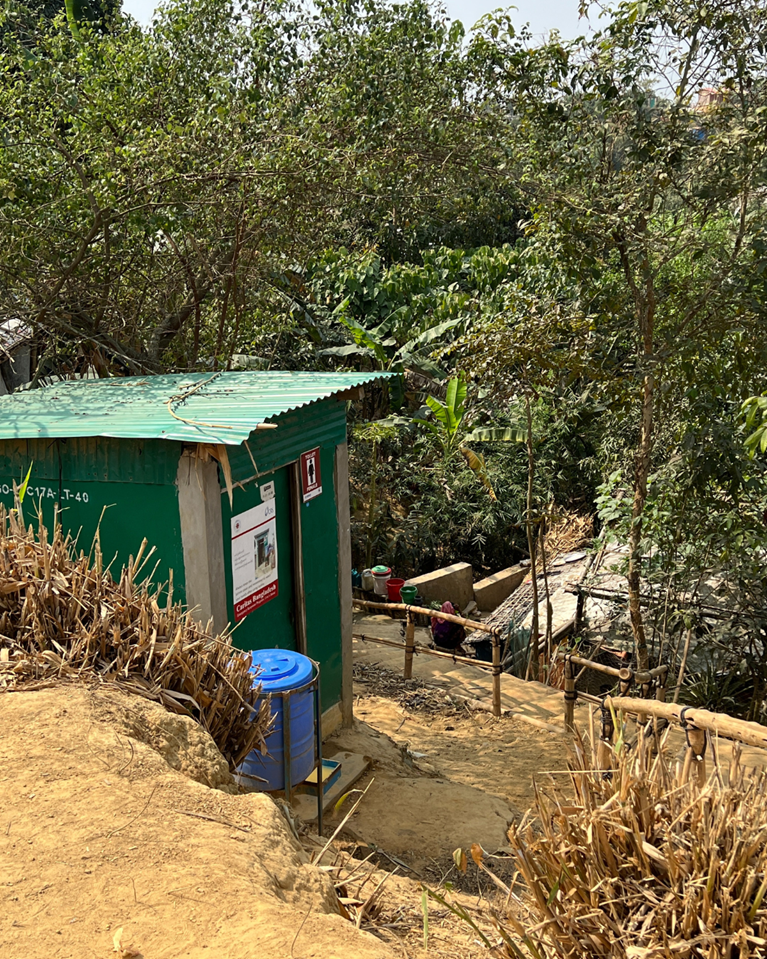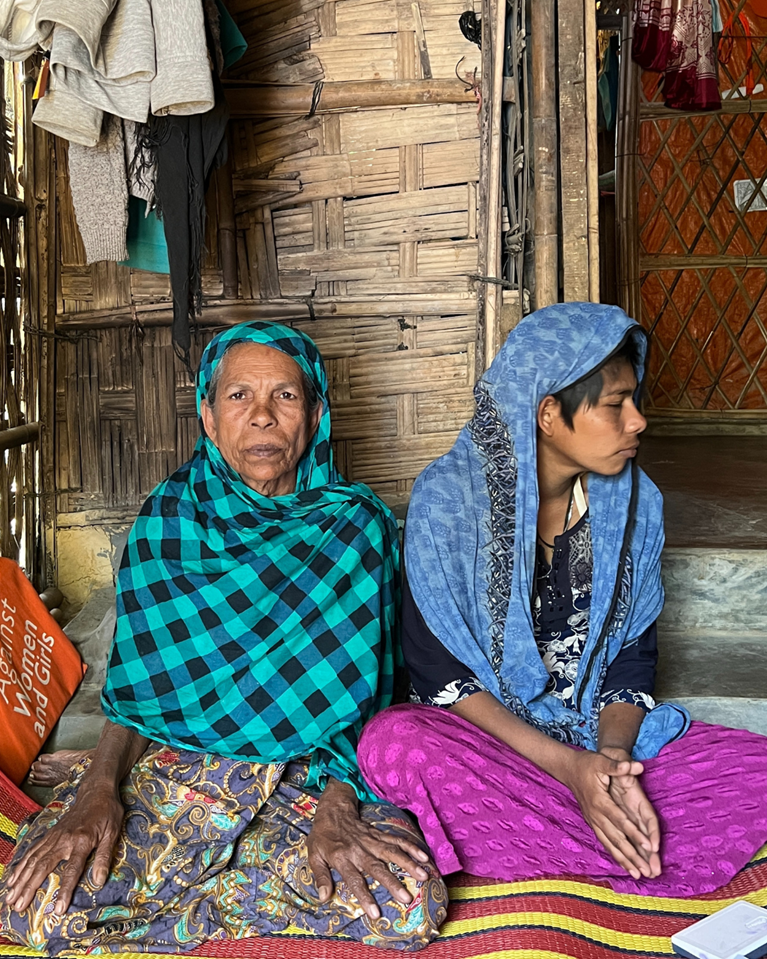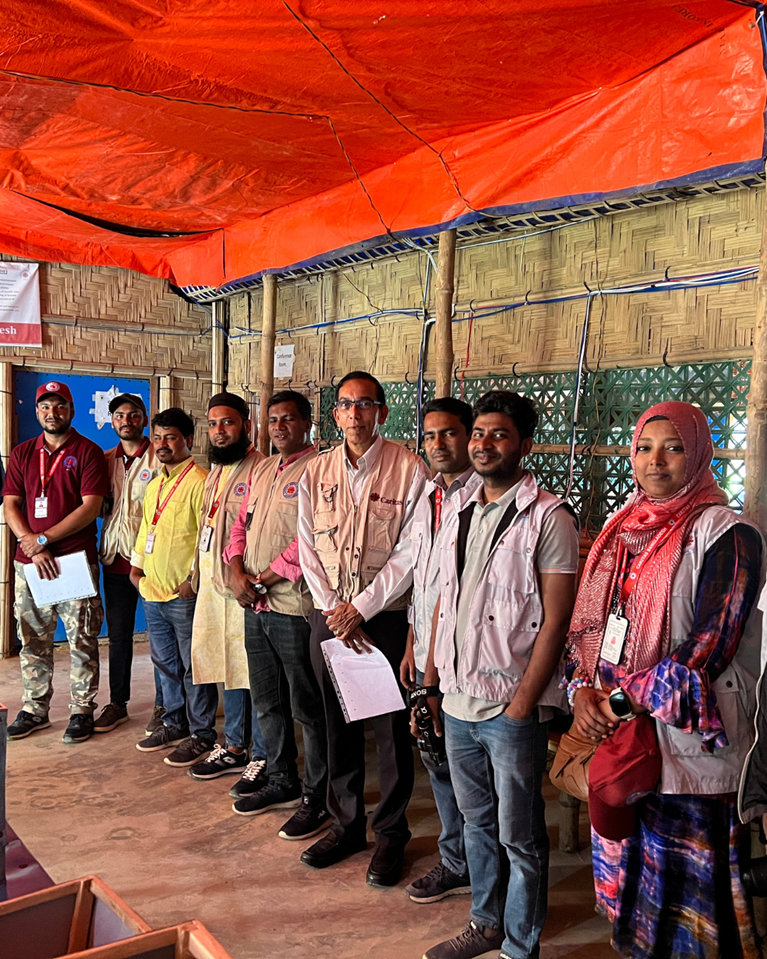Reflections on Cox's Bazar: A Journey of Resilience and Hope
27 Mar 24
As someone who has dedicated over two decades to working in humanitarian response, I've had the privilege of witnessing the resilience of communities facing unimaginable hardships across the globe. Yet, my recent visit to the world’s largest refugee camp in Cox's Bazar has left an indelible mark on my heart, reaffirming the profound impact of compassion and solidarity in the face of adversity.
What is life like for the Rohingya living in Cox’s Bazar?
The living conditions within the camps are stark and challenging. The makeshift dwellings are built out of bamboo and plastic sheets, so they are easily damaged or destroyed in extreme weather.
Over the past year, there has been an increase in incidences of violence in the camps, including clashes between armed groups. There has also been an uptick in gender-based violence.
Nearly one million refugees live in Cox’s Bazar, crammed into a mere 13 square kilometers. Despite the small geographical area, the scale of the camp is beyond imagination. No matter which direction you look, the horizon is filled by blue rooftops and the innumerable humanitarian organisation logos marking projects. There are 34 different camps within the camp itself, each with its own governance and international coordination system.
Despite the magnitude of the need, commitment from donors wanes more every year. Last year, the response to the crisis was only 40 per cent funded, leaving a massive gap in needs going unaddressed.


What are examples of the challenges the Rohingya refugees face in the camps in Bangladesh?
Cuts to the food budget across the camp have led to rising malnutrition rates and rapidly deteriorating health outcomes. The threats of overcrowding, poor water and sanitation leads to an endless cycle of disease outbreaks, from scabies to dengue fever. People are reliant on water from pumps, yet the relentless onslaught of floods and landslides during the monsoon season contaminate these vital facilities.
Health centres and hospitals are operating beyond capacity, struggling to cope with the overwhelming demand for services. There has also been an uptick in violence and crime, and a harrowing increase in the exploitation of women and children.
Rohingya refugees lack legal status and livelihood opportunities, and their movement outside the camp is restricted, which leaves them entirely dependent on foreign aid for survival.
What is Caritas doing to help the Rohingya in Cox’s Bazar?
Yet, amidst the tales of hardship and loss, there were also glimmers of hope. Organisations like Caritas Bangladesh are working tirelessly on the ground, providing lifesaving assistance and support to those in need. From the woman who told me how the accessible latrine had changed her life for the better, to the protection centres where vulnerable women and girls are able to seek support and a sense of community, the presence of Caritas Bangladesh served as a beacon of hope amidst the darkness, offering a lifeline to those who had lost everything.
My visit to Cox's Bazar was a stark reminder of the urgent need for continued support and solidarity for the Rohingya refugees and the host communities who have generously welcomed them. As the world grapples with a myriad of crises, it is more important than ever to uphold our shared humanity and stand in solidarity with those who are most vulnerable.
Article written by Melville Fernandez, Humanitarian Emergencies Associate Director, Caritas Australia
